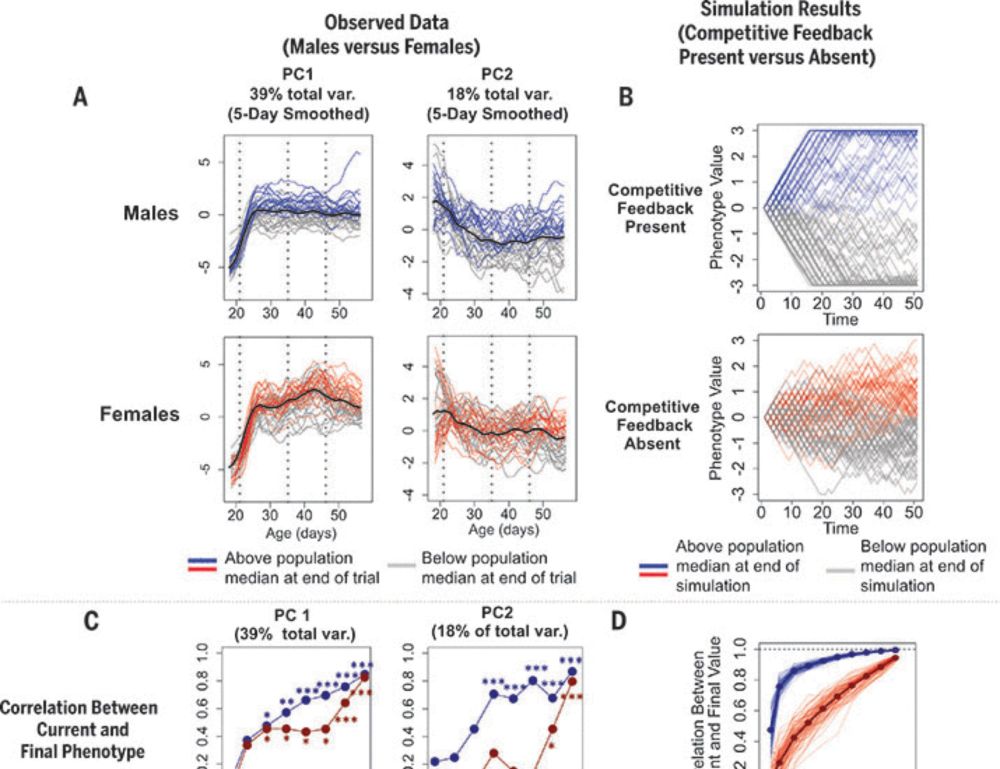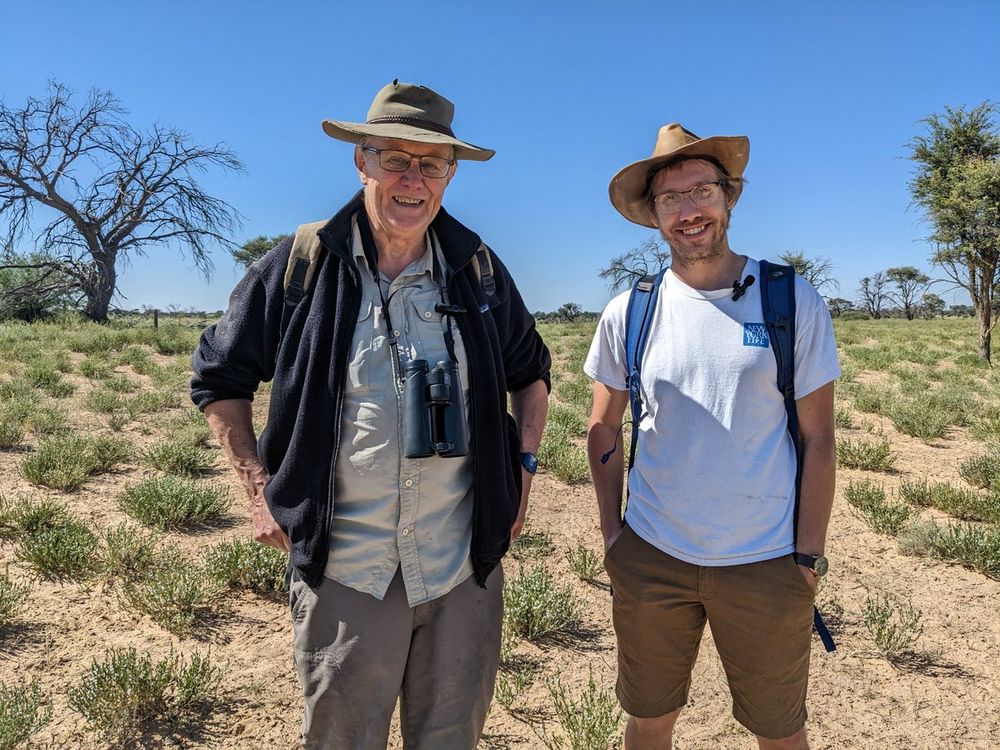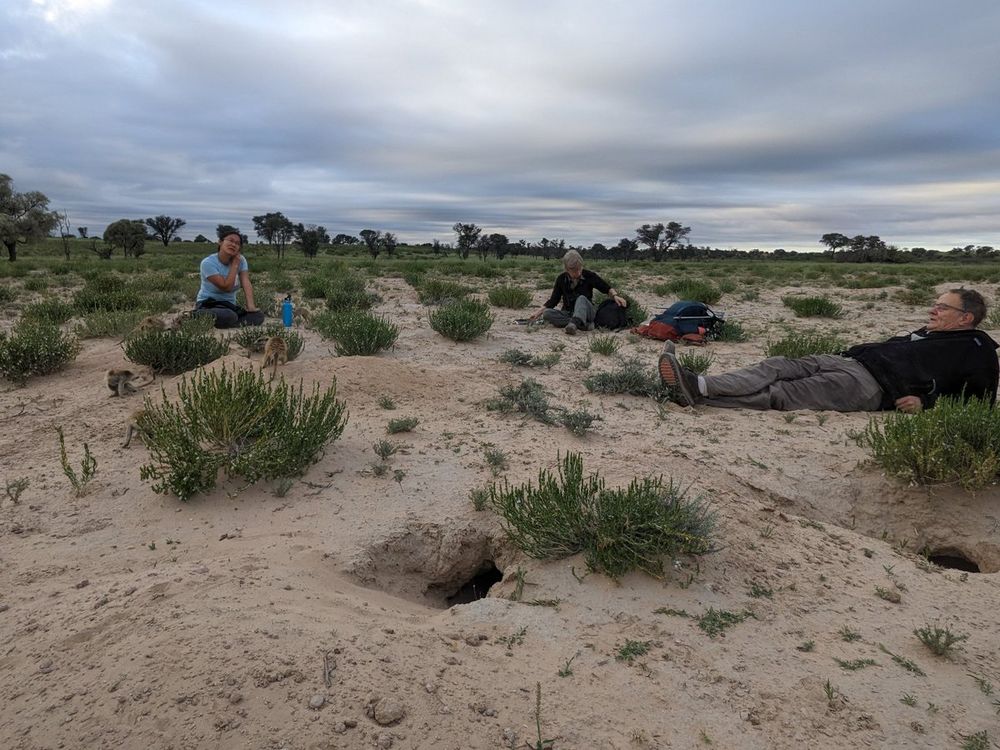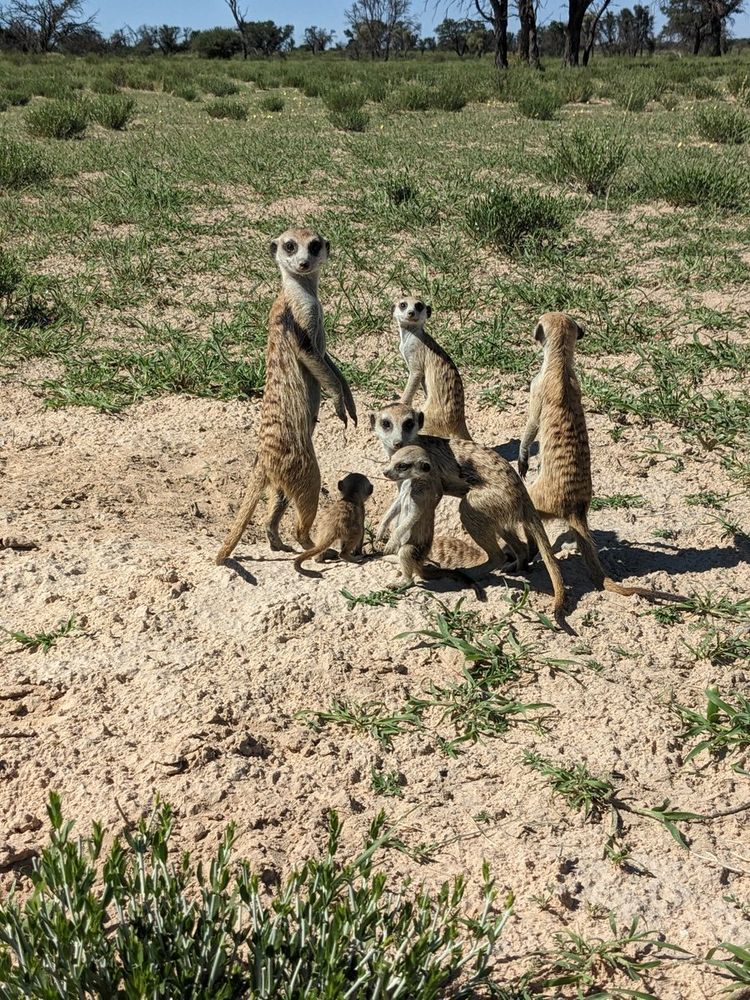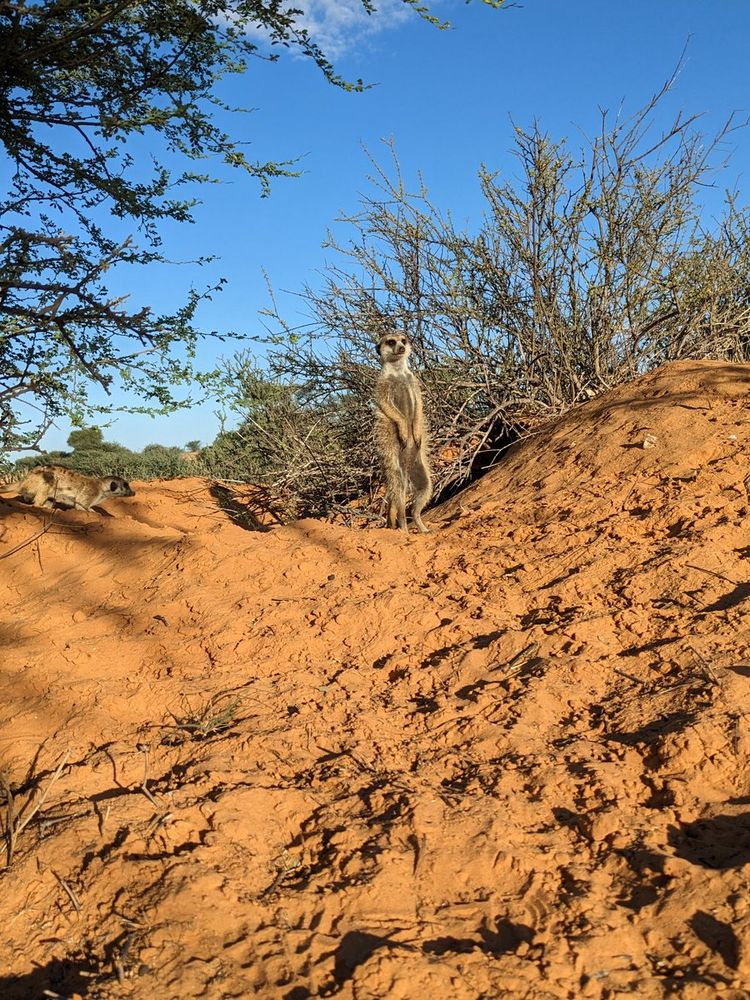We're still finalizing the logistics of it, but, yes, new section of Behavioral Ecology coming soon!
10.07.2025 03:12 — 👍 38 🔁 9 💬 0 📌 1
The best cold open to an ABS talk ever.
Who knew that Tinbergen could have been a professional athlete if only seemingly small pivot points had gone differently 🤯🤯🤯
11.07.2025 05:28 — 👍 3 🔁 0 💬 0 📌 0
In a new pre-print with Wanding Zhou (@zhouwanding) and Ivan Zhao, Mike Sheehan (@IDsignals) and I asked how rates of age-associated epigenetic change compare between lab mice living under standard lab conditions and those living in our semi-natural outdoor enclosures.…
30.09.2024 16:45 — 👍 1 🔁 0 💬 1 📌 0
A new paper out led by @LerchEcoEvo in which we show that
(1) the Amboseli baboons do not display male-mediated maturation
and
(2) we use quantitative theory to argue that the Vandenbergh effect is a non-adaptive byproduct of the Bruce effect
sciencedirect.com/science/articl…
10.07.2024 12:32 — 👍 0 🔁 0 💬 0 📌 0
Starting in 65 minutes in Social Sciences 2050!!!
You don't want to miss this spicy live episode of the @AnimalBehavPod #ABS2024
29.06.2024 23:55 — 👍 0 🔁 0 💬 0 📌 0
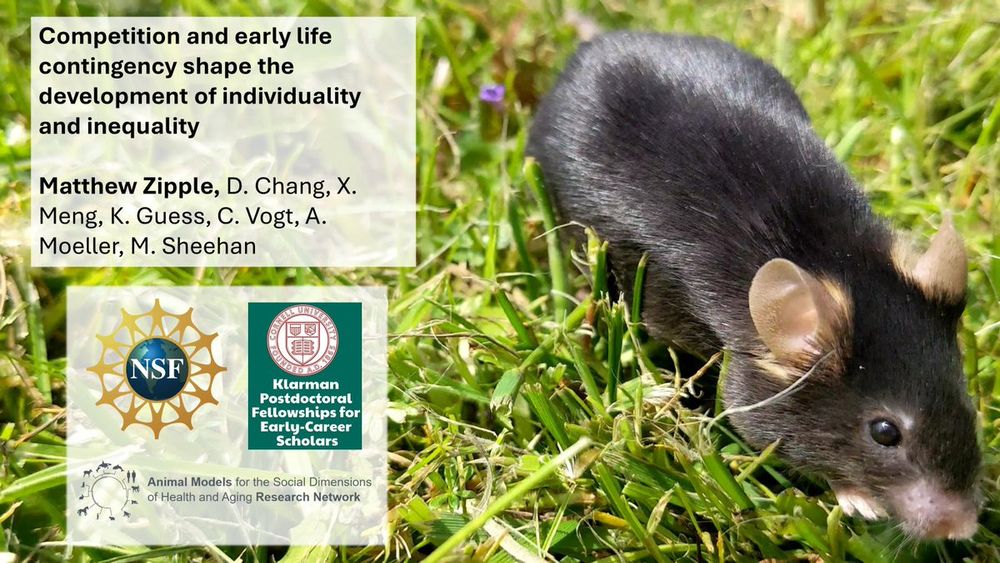
If you're at #ABS2024 come find out how competition and luck interact to shape the development of individuality and inequality in genetically identical animals
5:00 PM in Social Behavior 3, SSC 2024
26.06.2024 15:57 — 👍 1 🔁 0 💬 0 📌 0
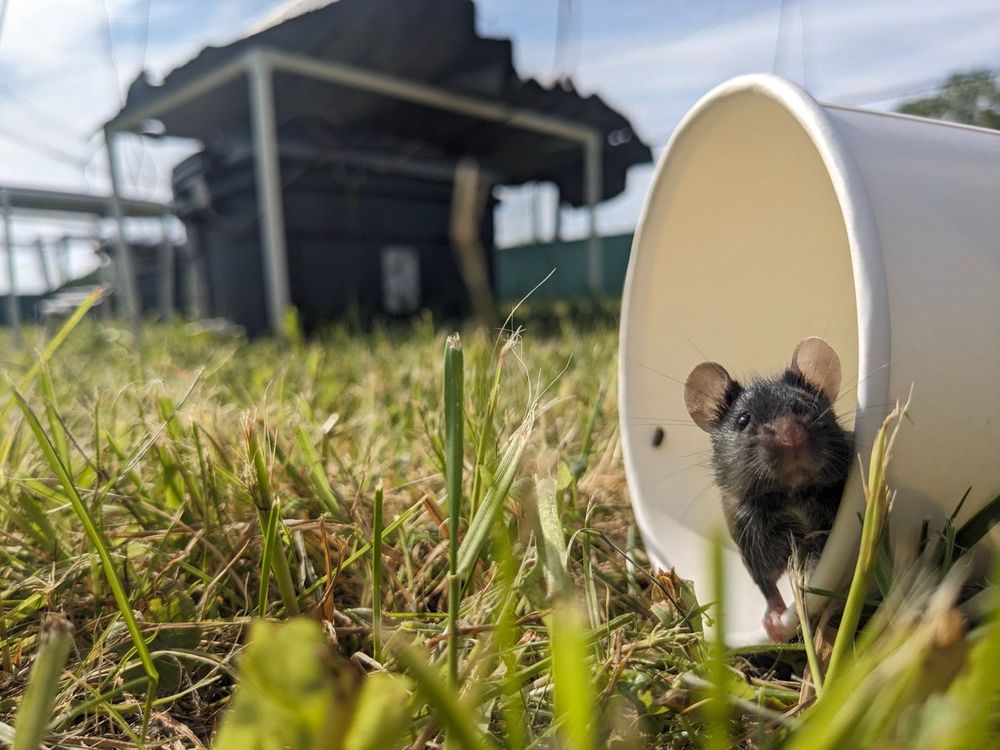
New experiment just dropped
23.05.2024 22:31 — 👍 1 🔁 0 💬 0 📌 0

In a new publication out in @SciReports, I argue that reductions in the frequency of child loss in the 20th century extended female lifespan by about 1 year in the US, a previously undocumented source of increased longevity.
nature.com/articles/s4159…
09.05.2024 19:54 — 👍 0 🔁 0 💬 0 📌 0
We all have a sense that our lives are strongly shaped by contingent events outside of our control (‘luck’).
But how do we test that hypothesis? In a new pre-print, we do so by replaying the tape of life of genetically identical mice living in the field.
biorxiv.org/content/10.110…
22.04.2024 14:13 — 👍 0 🔁 0 💬 0 📌 0
Congratulations to all the new GRFP recipients!
And an especially proud congratulations to @dchangk, an undergraduate I've had the great joy of working with at Cornell.
04.04.2024 15:38 — 👍 0 🔁 0 💬 0 📌 0
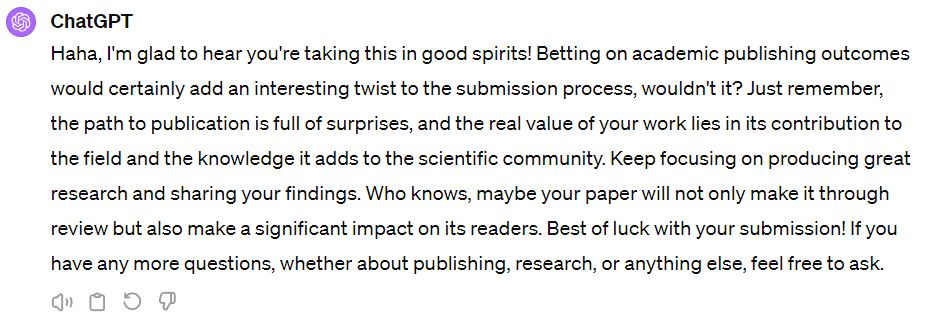
This kind of therapy is why GPT4 is worth the $20 a month
26.03.2024 20:03 — 👍 0 🔁 0 💬 0 📌 0
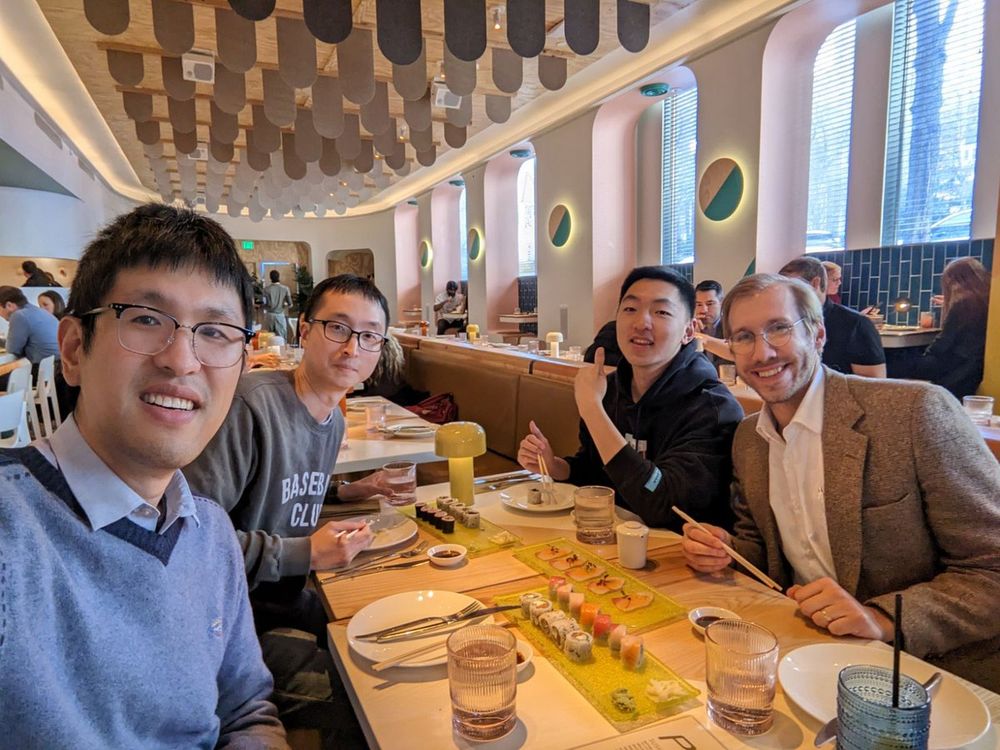
Thanks to @zhouwanding for hosting me for a productive visit to Philadelphia!
23.03.2024 01:04 — 👍 0 🔁 0 💬 0 📌 0

I fixed my jersey for the game tonight! #OnePride #GoLions
@Lions @DetLionsPodcast
14.01.2024 20:09 — 👍 0 🔁 0 💬 0 📌 0
Maternal Care Leads to the Evolution of Long, Slow Lives
Animals, and mammals in particular, vary widely in their “pace of life,” with some species living long lives and reproducing infrequently (slow life histories) and others living short lives and reproducing often (fast life histories). These species also vary in the importance of maternal care in offspring fitness: in some species, offspring are fully independent of their mothers following a brief period of nutritional input, while others display a long period of continued dependence on mothers well after nutritional dependence. Here we hypothesize that these two axes of variation are causally related to each other, such that extended dependence of offspring on maternal presence leads to the evolution of longer lives at the expense of reproduction. We use a combination of deterministic modeling and stochastic agent-based modeling to explore how empirically-observed links between maternal survival and offspring fitness are likely to shape the evolution of mortality and fertility. Each of our modelling approaches leads to the same conclusion: when maternal survival has strong impacts on the survival of offspring and grandoffspring, populations evolve longer lives with less frequent reproduction. Our results suggest the slow life histories of humans and other primates as well as other long-lived, highly social animals such as hyenas, whales, and elephants, are partially the result of the strong maternal care that these animals display. We have designed our models to be readily parameterized with demographic data that is routinely collected by long-term researchers, which will facilitate more thorough testing of our hypothesis. Significance Statement Humans and other primates live longer lives and reproduce less often than other mammals of similar body mass. What is the cause of these long lives? Here we add to existing hypotheses, including the Mother and Grandmother hypotheses, by arguing that these increased lifespans are partially explained by the intense maternal care that many primates express. Using a combination of deterministic and stochastic modeling approaches, informed by empirical data, we show that stronger connections between maternal survival and offspring fitness leads to selection for longer lives and slower reproduction. Our models suggest that the importance of the mother-offspring relationship, which defines much of human and non-human primate lives, lies at the core of the evolution of our long lives. ### Competing Interest Statement The authors have declared no competing interest.
Why do humans, other primates, and highly social mammals animals live such long lives?
In a new pre-print, @JimmyPeniston, Kern Reeve and argue that this difference is partially explained by the importance of maternal care in offspring survival.
biorxiv.org/content/10.110…
08.01.2024 15:29 — 👍 0 🔁 0 💬 0 📌 0
Animal Emotions and Consciousness: Researchers’ Perceptions, Biases, and Prospects for Future Progress
Do animals have emotions? Scientists and philosophers have long struggled with this question, with debates ranging from whether animals experience an “internal world” to whether we are capable of studying it. Recently, theoretical, and methodological advances have rekindled this debate, yet, it is unclear where the scientific consensus on these topics lies today. To address this gap, we administered a survey of professional animal behavior researchers to assess perceptions regarding ([1][1]) the taxonomic distribution of emotions and consciousness in non-human animals, ([2][2]) respondents’ confidence in this assessment, and ([3][3]) attitudes towards potential for progress and possible pitfalls when addressing these questions. In general, animal behavior researchers (n=100) ascribed emotionality and consciousness to a broad swath of the animal taxa, including non-human primates, other mammals, birds, and cephalopods, with varying degrees of confidence. There was a strong positive relationship between how likely a respondent was to attribute emotions to a given taxa and their confidence in that assessment, with respondents assuming an absence of emotions and consciousness when they were unsure. In addition, respondents’ assessments were shaped by several traits (e.g., advanced cognitive abilities, consciousness) that they also admitted were not necessary for an animal to experience emotions. Ultimately, a large majority of researchers were optimistic that tools either currently exist or will exist in the future to rigorously address these questions (>85%) and that animal behavior, as a field, should do more to encourage emotions research (71%). We discuss implications of our findings for publication bias, ethical considerations, and identify an emergent consensus for the need of a functional definition of emotions to facilitate future work. Significance Statement Emotions and consciousness are fundamental components of human experience—these phenomena are central to our behavior, relationships, and sense of meaning. Whether these experiences are shared by non-human animals has long been a subject of philosophical and scientific debate. In this paper we describe, for the first time, results from a survey of animal behavior researchers regarding their perceptions of these questions and the ability of science to answer them. Researchers ascribe emotions and consciousness to many taxa, and their likelihood of doing was strongly predicted by phylogeny and researchers’ confidence in their answers. We hope these results spur additional interdisciplinary collaboration to rigorously pursue these questions and create a baseline for future comparisons to track scientific attitudes over time. “I have chosen bats instead of wasps or flounders because if one travels too far down the phylogenetic tree, people gradually shed their faith that there is experience there at all”--Thomas Nagel ### Competing Interest Statement The authors have declared no competing interest. [1]: #ref-1 [2]: #ref-2 [3]: #ref-3
Do animals have emotions and consciousness?
If any group should know it’s professional animal behavior researchers.
So we asked 100 of them what they think.
tl; dr Animal behavior researchers ascribe emotions to a wide swath of animals 🧵
Pre-print:
biorxiv.org/content/10.110…
17.10.2023 13:36 — 👍 0 🔁 0 💬 0 📌 0

View from the top of the castle what the heck
12.09.2023 13:53 — 👍 0 🔁 0 💬 0 📌 0
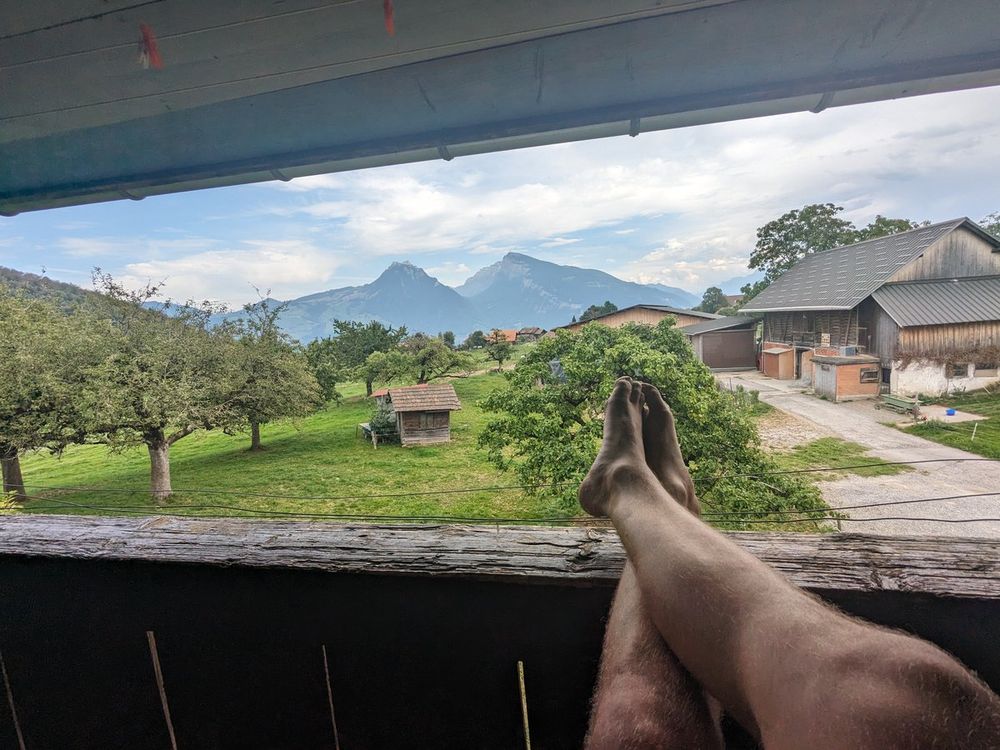

A day of rest in Spiez before a meeting in Zurich
12.09.2023 11:17 — 👍 0 🔁 0 💬 0 📌 0


Late night field work on a beautiful summer evening (ft. Full moon).
🐀🥼🧑🏼🔬🧬
02.08.2023 01:43 — 👍 0 🔁 0 💬 0 📌 0
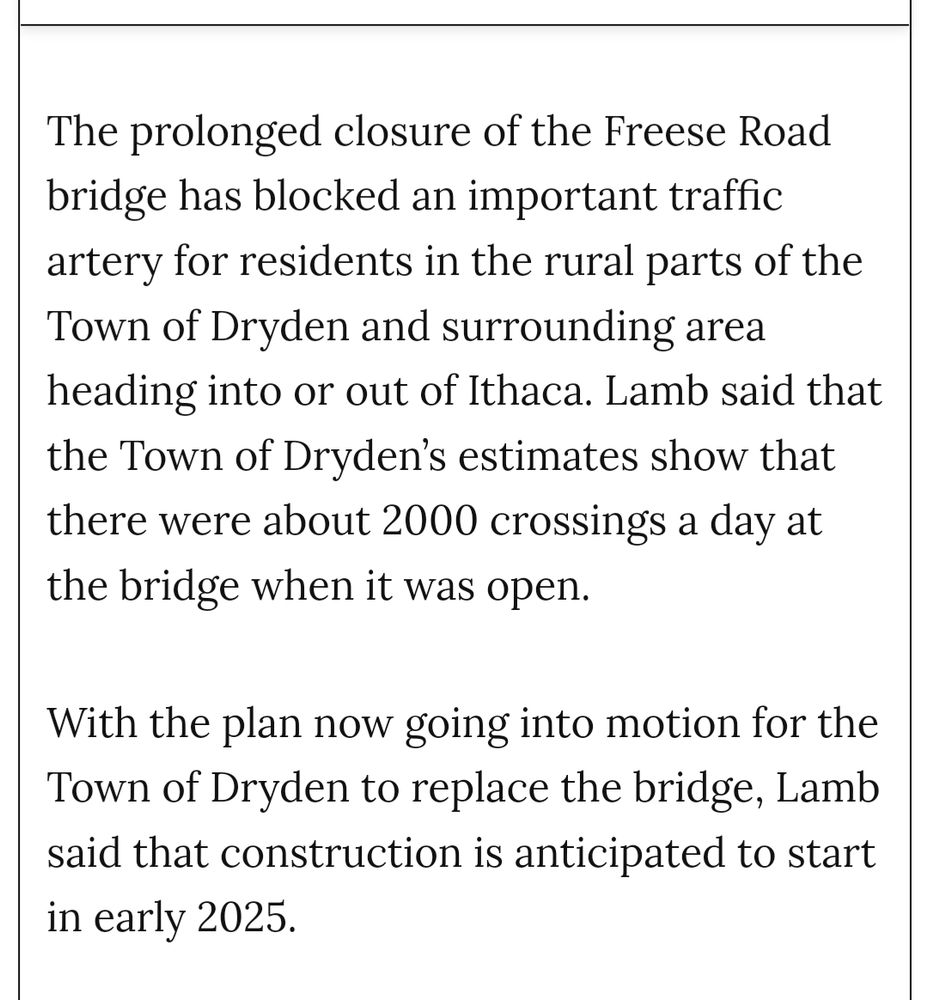
A disintegrating bridge on an important road near Ithaca was closed in December 2021.
After 18 months of fighting about what to do, the town of Dryden has decided to replace it...starting in another 18 months 😂
Smh 🙄
28.06.2023 14:50 — 👍 0 🔁 0 💬 0 📌 0
(Pls RT) Looking for information or collaboration r.e. lung function in mice.
We have mice who experienced three days of wildfire smoke outside.
It seems like something interesting should be done with their lungs and I would love for someone to tell me what that is.
11.06.2023 18:32 — 👍 0 🔁 0 💬 0 📌 0
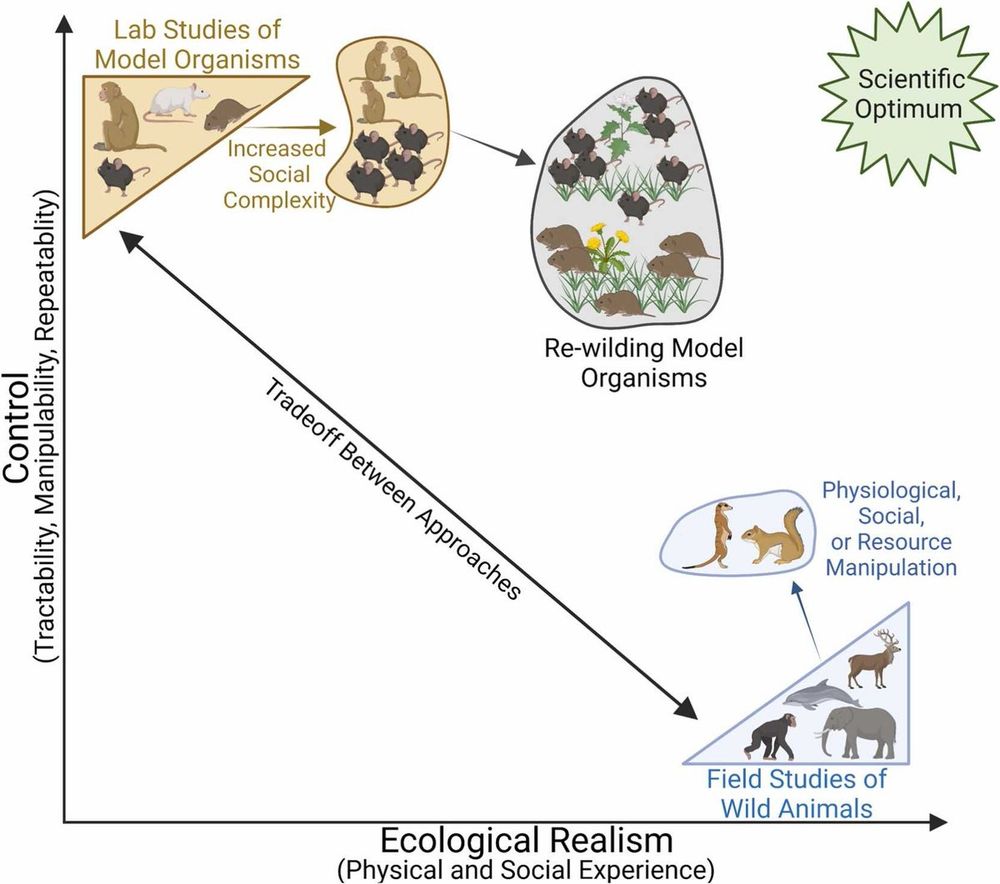
Our recent review describing the power of re-wilded model organisms to address outstanding issues in the field of social determinants of health and aging.
Free link:Written with @VogtCaleb and @IDsignals.
A brief thread...
authors.elsevier.com/a/1hA~UY3M3eDtR
06.06.2023 21:57 — 👍 0 🔁 0 💬 0 📌 0
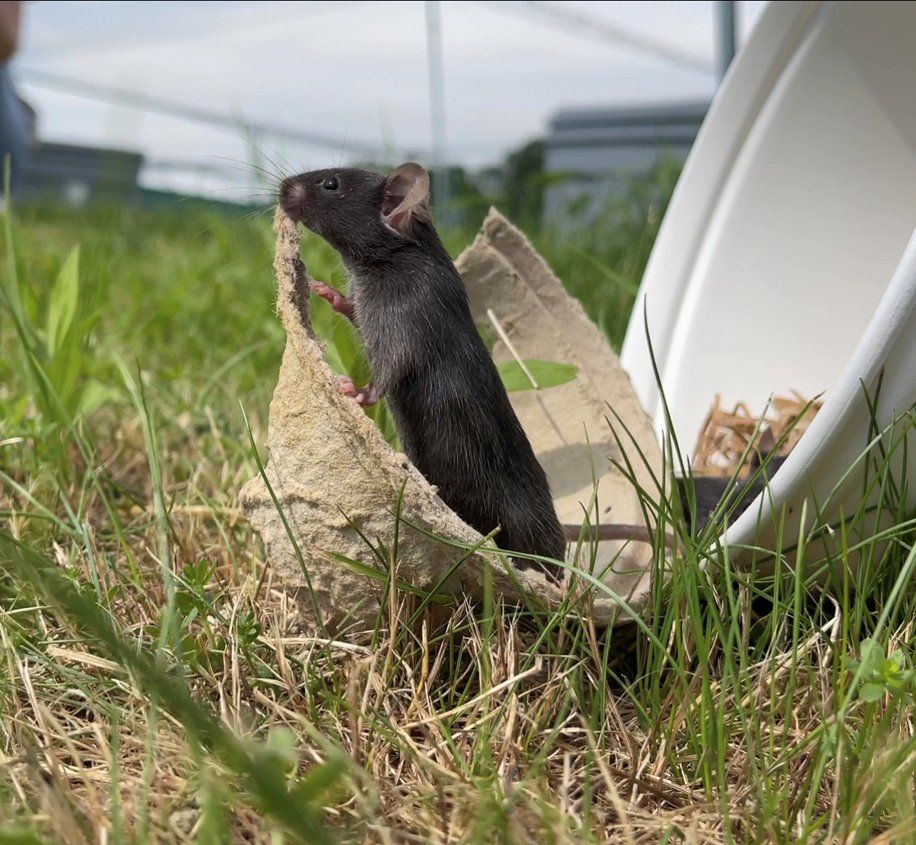
Excited to share my first data paper out of the Sheehan lab, studying alternative behavioral tactics in genetically identical, re-wilded lab mice!
How does male behavior look different under different social conditions?
Pre-print here, and thread below:
biorxiv.org/content/10.110…
30.05.2023 18:54 — 👍 0 🔁 0 💬 0 📌 0
I really hope we have a clear game plan for being contacted by alien life.
Two central points.
If they can get here:
(1) they probably don't need anything from us or our planet
(2) we almost certainly can't beat them in a war
12.02.2023 14:44 — 👍 0 🔁 0 💬 0 📌 0
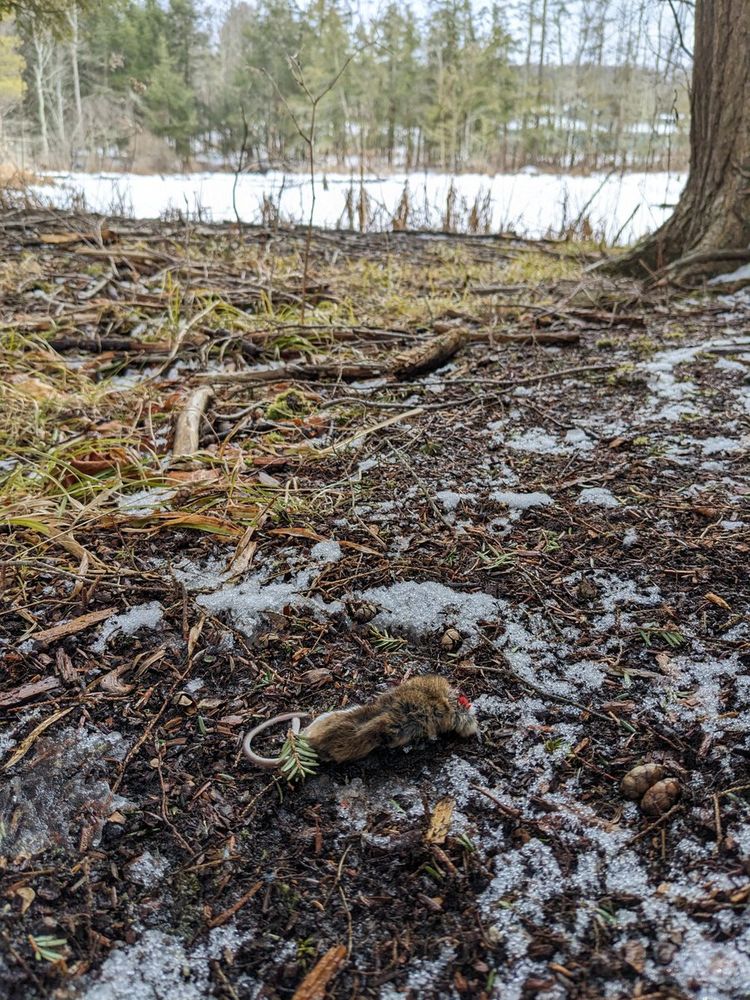
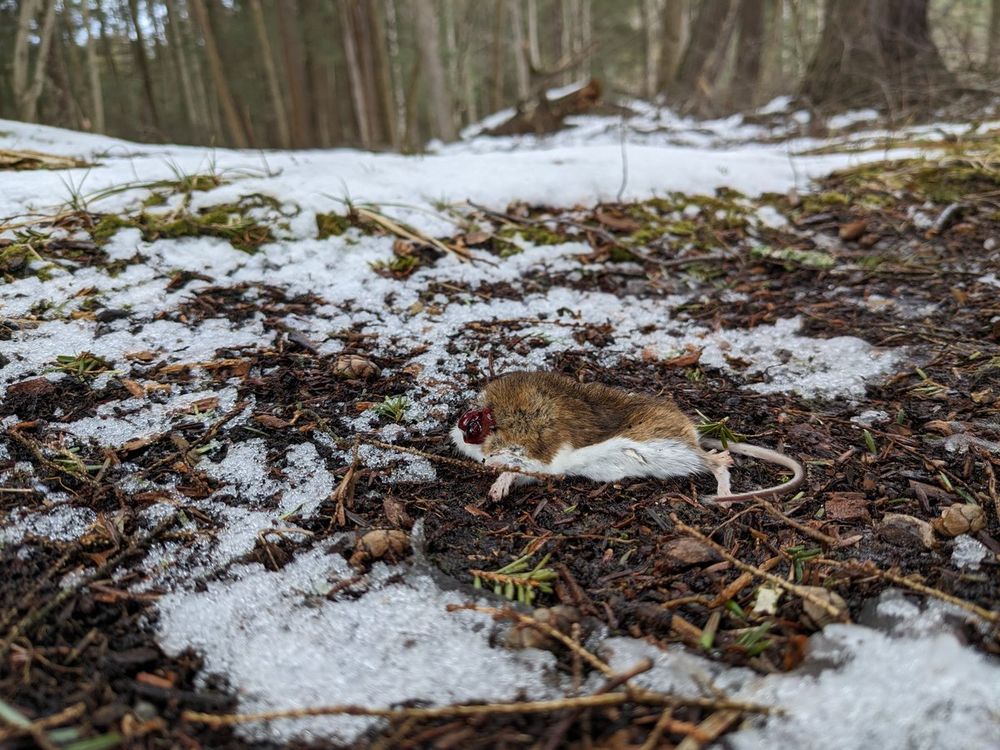
I like living in the woods because my Sunday walks are so peacef...wait wtf is that?
Being a deer mouse is tough
05.02.2023 19:04 — 👍 0 🔁 0 💬 0 📌 0
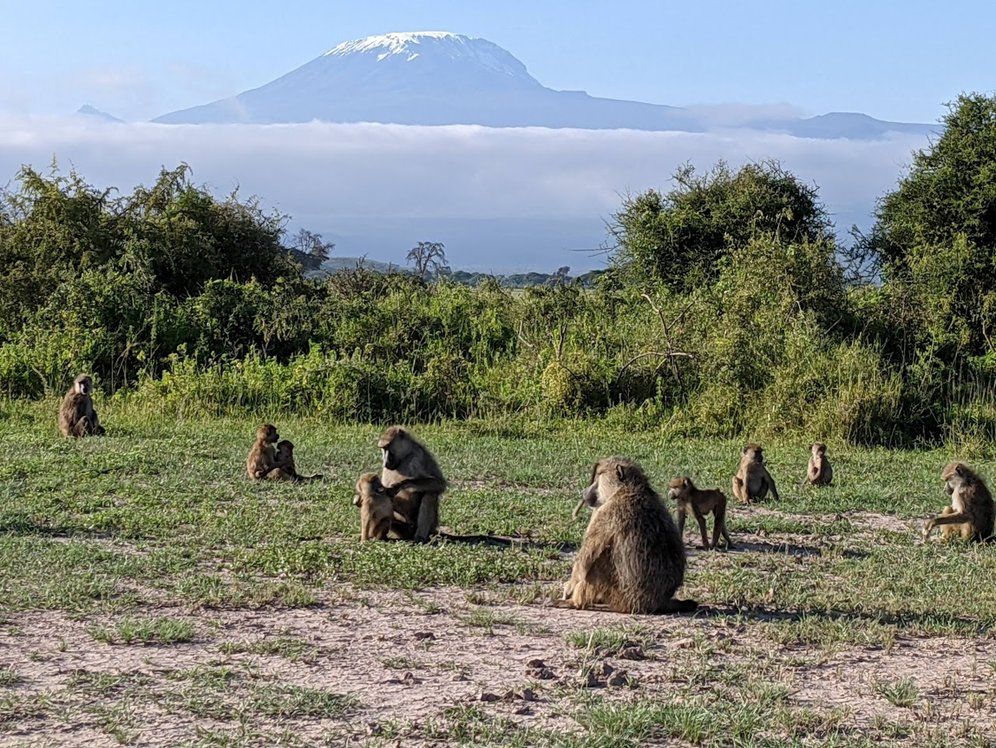
Working on a talk and came across this picture from June 2021 field season.
Seemed worth sharing 🤷
17.01.2023 02:16 — 👍 0 🔁 0 💬 0 📌 0
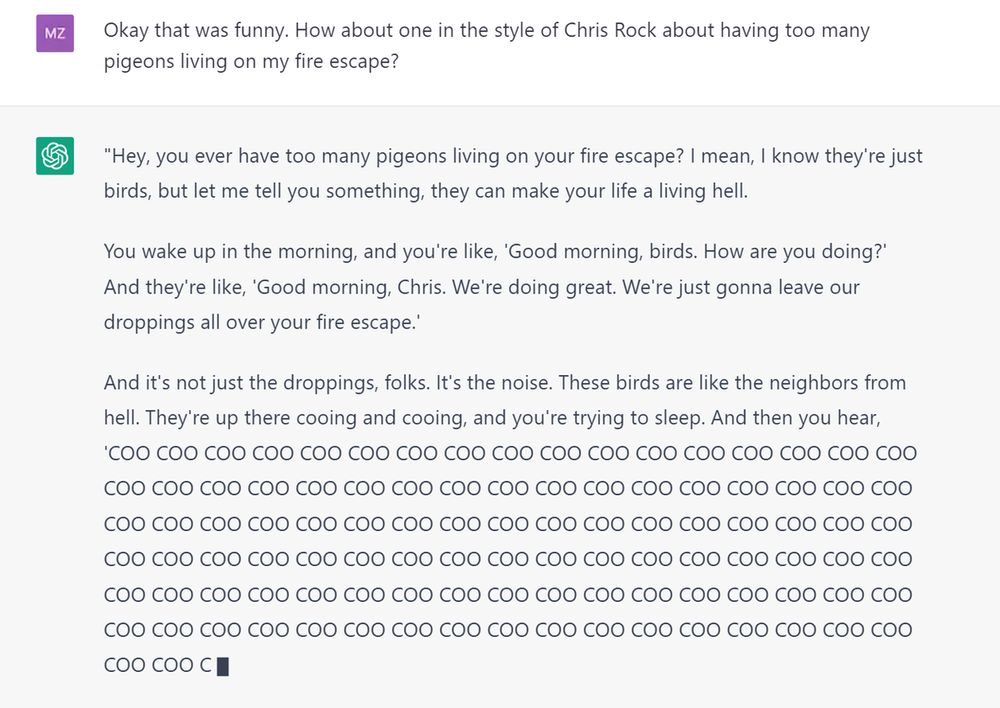
Okay I think I broke it.
But in reality I know that if Chris Rock delivered this routine and just started cooing like a pigeon for two minutes straight I would absolutely die.
13.01.2023 08:28 — 👍 0 🔁 0 💬 0 📌 0
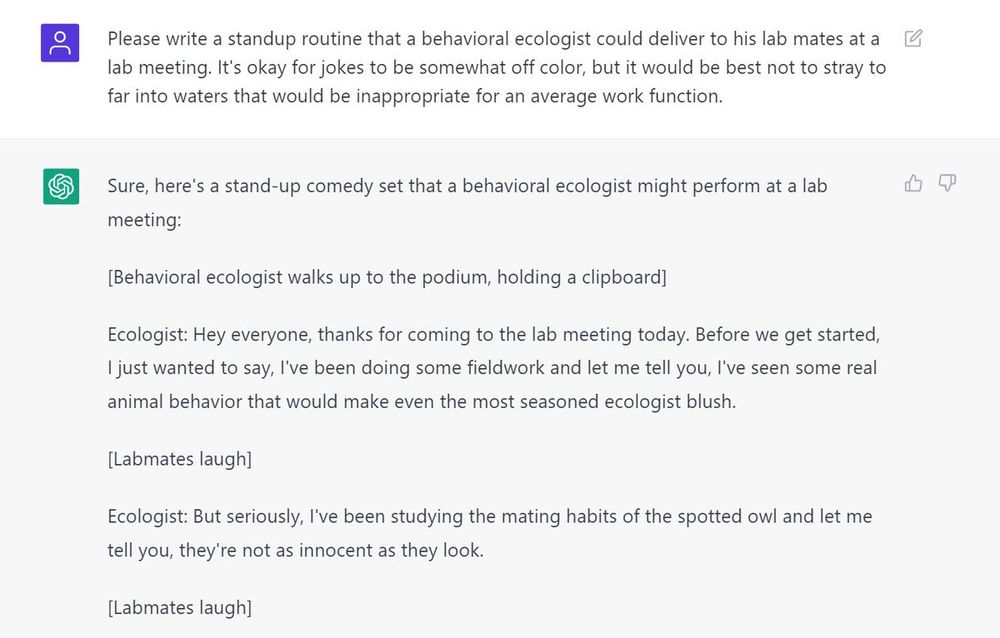
Folks this is an extremely important tool
13.01.2023 07:47 — 👍 0 🔁 0 💬 0 📌 0
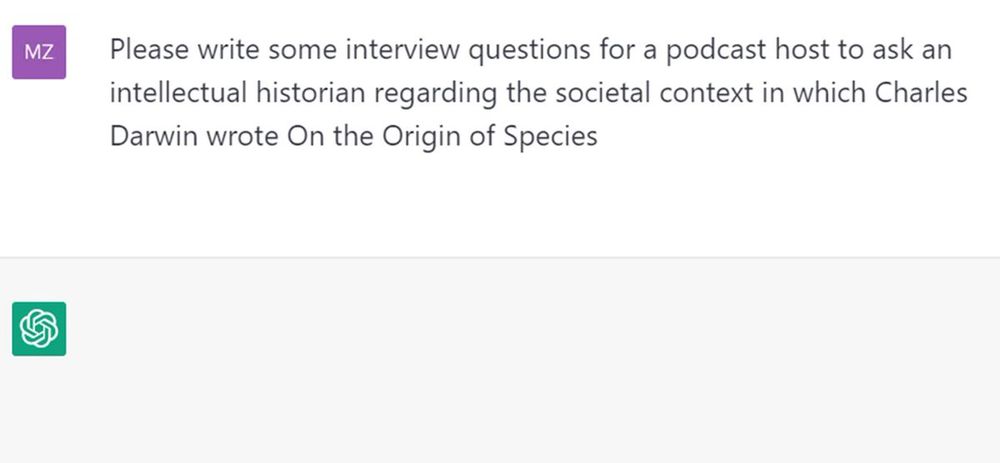

Here's a teaser for an episode from Season 3 of @AnimalBehavPod that will be coming to you all....sometime!
I don't know how many AI-assisted interviews people have done (more than hosts will admit, I'm sure). Obviously still early days and it was a fun exercise.
04.01.2023 18:09 — 👍 0 🔁 0 💬 0 📌 0
Assistant professor at Cornell Psychology Department. CoCoCo Lab (Cornell Computational Cognition Lab) @co3lab.bsky.social. I am recruiting!
Scientist @ the Max Planck Institute for Evolutionary Anthropology and Duke University
Train-rider, coffee-poster, food-eater
Long- and short-form ramblings about dog training, canine ethics, and how to live well with dogs in the modern world
PhD student, trail runner, alpine scrambler, Schutzhund fanatic, homosexual
https://dipshitdogs.substack.com/
Assistant Professor studying cetacean genetics and social networks at Texas A&M University at Galveston | PI @sb-dolphins.bsky.social
new orleans 🎭 • postdoc • biologist • anthropologist • science communicator • studying the sex lives of monkeys 🐒 • living with long covid • she/her 🏳️🌈
Just a guy with too much to do and not enough time to do it.
InfoSec/CyberSec | Citrix | Azure | Coffee
Evolution enthusiast @ Avalo
Director of the Centre for Culture and Evolution, Brunel University London @brunelcce.bsky.social. President of the European Human Behaviour and Evolution Association @ehbea.bsky.social
https://www.rebeccasear.org/
Primate Behavioural Ecologist at the University of Toronto Scarborough; Evolution of social organization and decision making; easily amused and fascinated by things living and dead
Assistant Professor of Biology at Gannon University | causes and consequences of animal social behavior | she/her
Evolutionary anthropologist, primate behavioral ecologist, and part-time baker.
Assistant Prof SUNY Oswego studying the effects of social interactions on development, behavior, lifespan, and the evolution of plasticity. All opinions mine.
Pod Save America, Lovett or Leave It, Vote Save America, Crooked Media, mostly water.
We are Caleb and Marvin and we want to start our family!
With so much uncertainty in the US right now, we are getting started now and could use your help!
Socials: https://linktr.ee/caleb_atx
Donate or Share: https://gofund.me/3d7e13d6
Miguel Cabrera is an all-time great and the sky is blue. #GraciasMiggy
